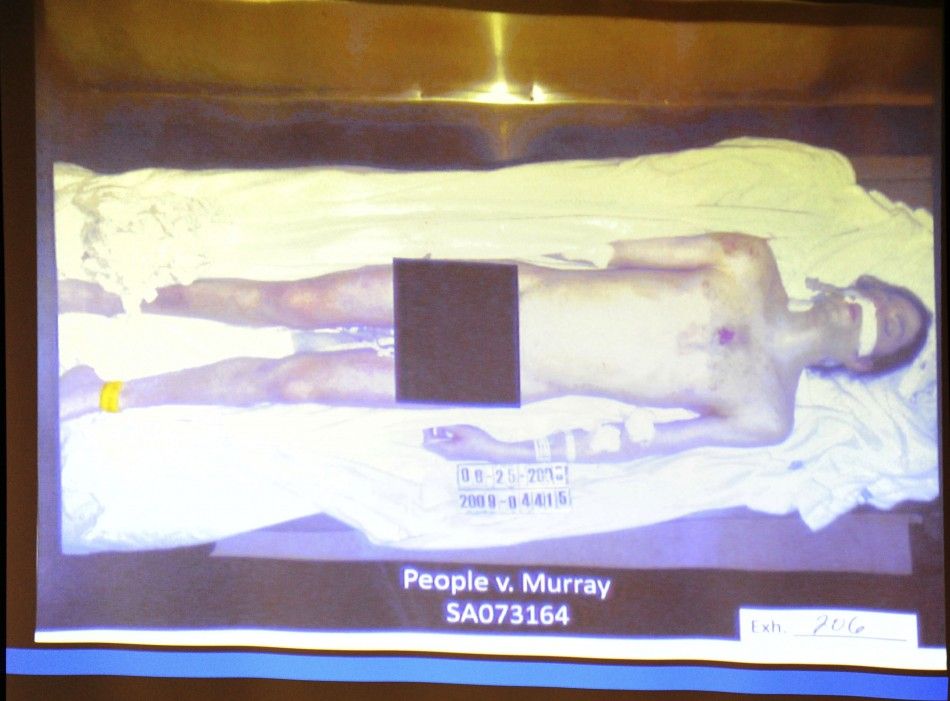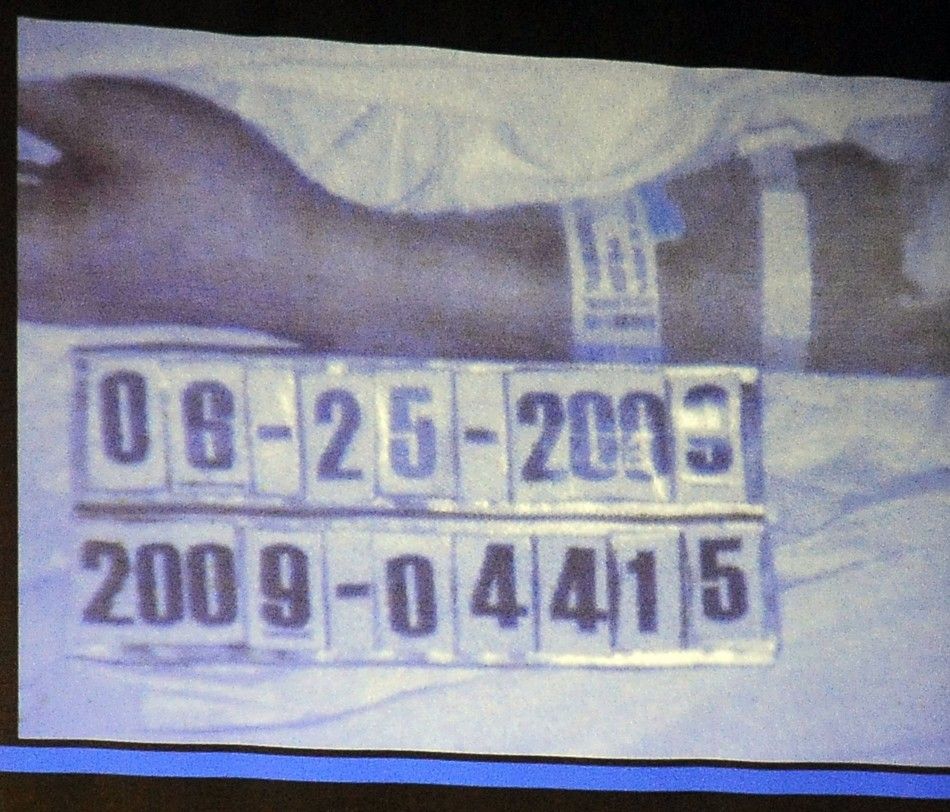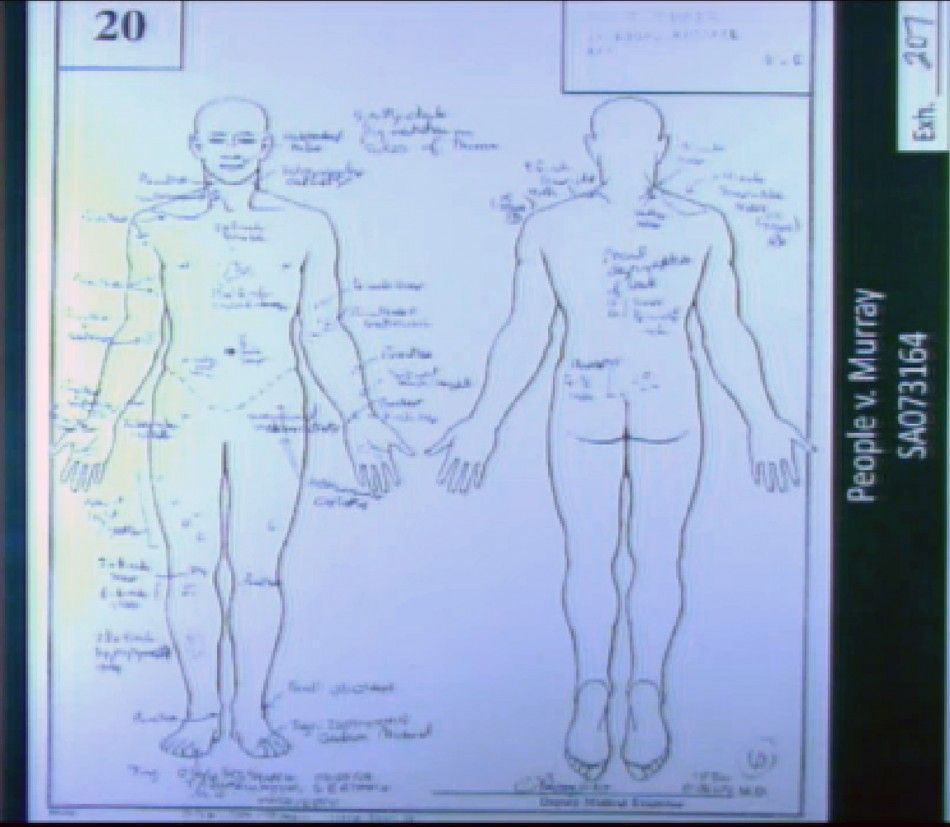Prosecutors Shock Courtroom with Michael Jackson Autopsy Photo [PHOTOS]
Prosecutors on Tuesday showed a shocking autopsy photograph of Michael Jackson in court as the involuntary manslaughter trial against his personal doctor Conrad Murray continues.
The doctor who performed an autopsy on dead King of Pop told jurors that it would have been almost impossible for Jackson to kill himself with a lethal dose of drugs.
The circumstances from my point of view do not support self-administration of propfol, said Los Angeles Deputy Medical Examiner Christopher Rogers, seemingly challenging the defense's theory that Jackson gave himself a lethal dose of the drugs in the two minutes Murray said he was away from the singer in a nearby bathroom.
In order for Mr. Jackson to administer the propofol to himself, you have to believe that he... woke up, although he was at least to some extent under the influence of other sedatives, he was able to administer propofol to himself, Rogers said.
Jackson died in June 2009 of a drug overdose of the powerful anesthetic propofol. His death came after a rehearsal for his comeback tour.
During opening statements, Murray's defense attorney Ed Chernoff told jurors that Jackson had given himself a lethal dose of propofol and the sedative lorazepam, which created the perfect storm that instantly caused his death.
When Dr. Murray came into the room and found Michael Jackson, there was no CPR, there was no doctor, no paramedic, no machine that was going to revive Michael Jackson, Chernoff said on Sept. 27. He died so rapidly, so instantly, he didn't even have time to close his eyes.
Chernoff on Tuesday also questioned a Los Angeles Police Department detective about the agency's early investigation into the singer's death.
According to the Los Angeles Times, Chernoff asked Det. Scott Smith, the lead investigator on the case, about how forthcoming Jackson's personal doctor was during his interview after the pop singer's death.
Did Dr. Murray make any statement about the things he didn't want to talk about? Chernoff asked.
No, Smith replied.
Any question was wide open for you to ask? the attorney asked.
Yes, the detective said.
Chernoff stated in his cross examination of Smith that the detective never mentioned in the notes he took the state in which a key piece of prosecution evidence was found.
You never do mention that a propofol bottle was found in an IV bag, is that fair? Chernoff asked.
That would be fair, Smith said.
The Times also reported that the bottle and the bag became a source of conflict during the testimony of a coroner's investigator, Elissa Fleak, who said the bottle was found inside the bag. However, she never photographed it neither did she document in her notes that the two items were found in that condition.
Murray is facing four years in prison if he is convicted of involuntary manslaughter in the singer's death.
The autopsy photos released on Tuesday are below.



© Copyright IBTimes 2025. All rights reserved.






















